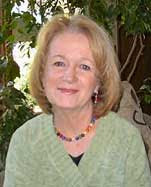Part Three: Street Signs For 'Seat of the Pants' Writers
Novels, however, are a marathon and this technique is better suited to short sprints. So how do you sustain your story when a myriad of dead ends, round-abouts, cul-de-sacs, and no through roads bar the way between the beginning and ‘the end’?
Pay Attention To Where You Have Been
When writing without a street map it’s important to keep track of where you’ve come from. Take note of significant details along the way. This will save you from having to backtrack. As ideas come to you, note them down. Forward ideas can help keep you moving when you’re unsure of your path.
Learn To Identify Signs
Novel writing is often formulaic. Once you’ve worked out the way the roads usually turn at any point you’ll learn to predict their coming. You might also notice your mental state changes at various points. If you learn to recognize these, you can be prepared to alter your course to avoid dead-ends.
Pull Over For Coffee
You may exert yourself writing a particularly intense few pages over a number of days or weeks. When your mind is exhausted it is important to give yourself a chance to recoup. Pull over for coffee, have a hot bath, go for a jog, iron laundry, or bake a cake. Do something that doesn’t require your mental process to give your mind some space. You’ll often find it fills with your story and you can return to writing, fully charged.
Ask For Directions
If you’ve written yourself into an endless loop and don’t know how to get out, ASK! While you mightn’t approach humans with your current project’s issues you should at least spend time addressing them with your characters. Sometimes, talking things over with your goldfish is enough to free your mind and see outside of the current situation. Perhaps have an interview with your characters and discuss where they feel the story has faltered and what can be done to rectify the situation. Don’t forget you can get help from the human factor as well; ask your friends and fellow writers for advice. Just talking about the issue is often enough to clarify the problem and find a solution.
Retrace Your Route
If these suggestions haven’t already set you back on course, retrace your steps. Read over your last few pages, or even further back if you need to. Focus on what brought them to this point and what your primary characters’ goals are. You may need to rework the current point and take a different route to get to a new destination.
The Road Trip Game (What If?)
Play the "What If?" game to decide where you could go from here. If you’ve come up against an intersection and don’t know which road to take, play it out in your mind. See the various options and run with them as a story concept to see where each will lead. You could even mark this point and choose any road at random, if you don’t like the outcome return to the intersection and choose a different route.
Take A Deliberate Detour
If there aren’t enough choices at an intersection or if you’ve snagged against a dead end and can’t bring yourself to turn around, it’s time to take a deliberate detour. Throw in a new plot element. It doesn’t have to work into the final draft. At this point you just need something to clear the way. If that means having superman fly in and rescue your characters from the teeth of a T-Rex, have this unlikely event occur. Free your character to continue their story and know that you’ll have the opportunity to clear that section up later.
Skip It!
Instead of taking a deliberate detour you can skip it. If your character is worked into a corner and has no way out, skip it! Jump right out of that situation and put them someplace else on the road. You don’t need to maintain a linear path. During the first draft it doesn’t matter if there are plot holes. You can fill those in later. For now, the important thing is to continue moving forward. Don’t labor over a pointless intersection, just write on, skip it and you can come back to it later.
For ‘seat of the pants’ writers the first draft is all about finding out what your story is going to be. It’s about getting to know your characters and walking a blind road. If you look to the street signs when you feel lost you will find the journey to your novels end far easier to face. You will keep moving forward and enjoy the adventure along the way.
Labels: Fiction Writing: Plot and Structure, Planner/Pantser Six Part Series
 |










